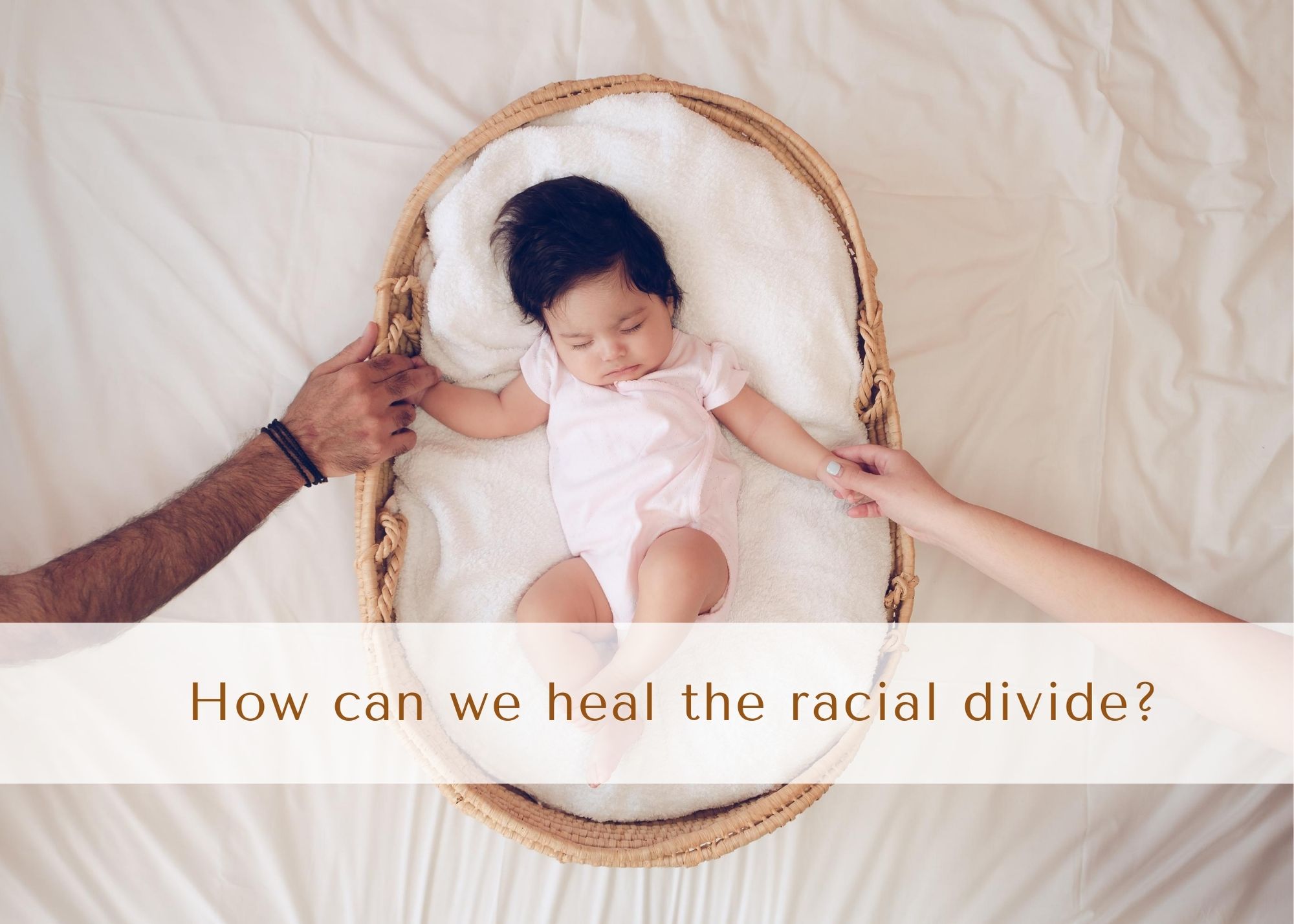Lessons about Race from a Child in a Basket
August 29, 2020
In the mid-70s, my parents adopted a child from South Korea—an infant girl left on the side of the road in a basket. She was strategically placed near a route where the orphanage workers travelled.
I’ve often wondered if her mother or an older sibling watched to make sure that she was safe, just like big sister Miriam watched Moses as he floated downstream in a handcrafted vessel. In a poor section of town, in a culture that has little use for women, I like to imagine that someone peered from a safe distance—hoping that, like Moses, my sister would find a better life.
She did.
But she didn’t float to it. She flew.
To America.
That basket took her to a new world. Seoul’s loss was our gain.
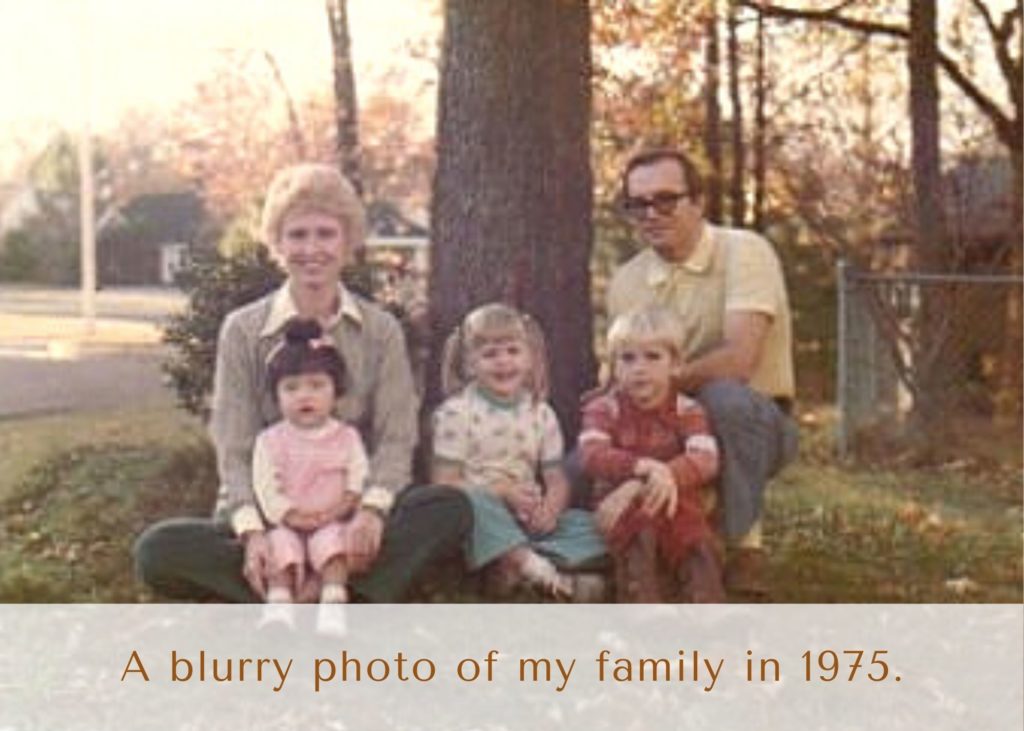
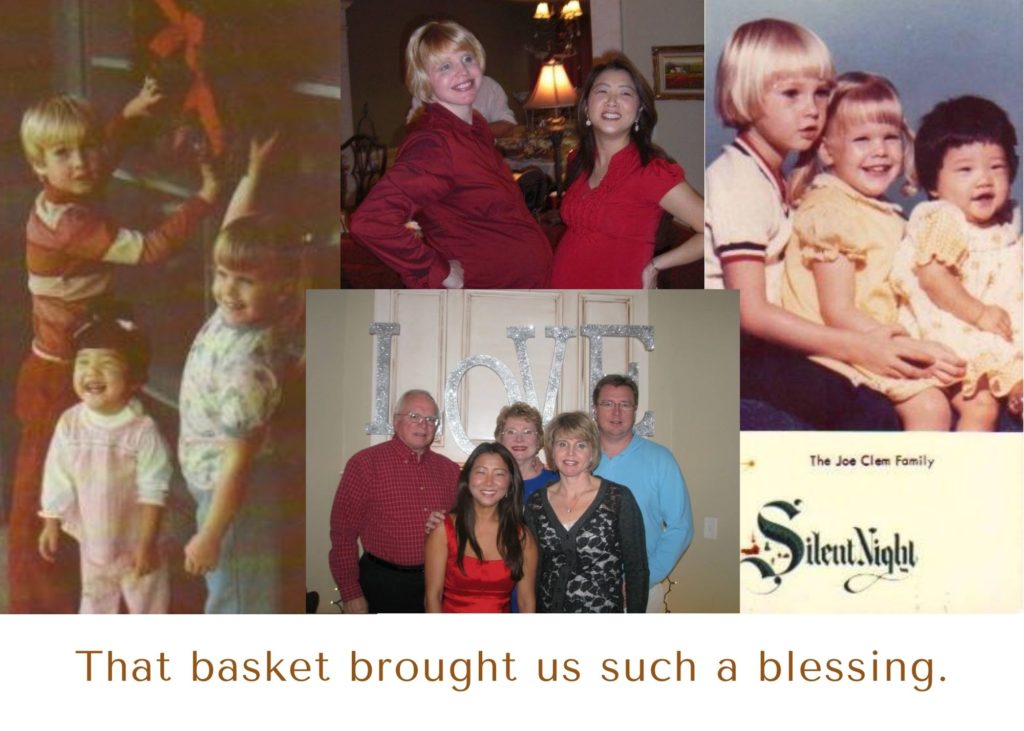
Millions of people come to the U.S. through adoption and immigration, people of other races and other lands. It is the great melting pot. Or it was supposed to be. It was for my family.
It was a gift to be raised in a home where skin color didn’t matter. It was a blessing to see, first hand, how melanin didn’t determine value. Or potential. Or love. My sister would turn a deep shade of mahogany after five minutes in the sun. I would turn pink and peel. It didn’t matter.
But where you live did matter. It still does.
If my little sister still lived in a shack somewhere in southern Asia, there’s no question that her life would be very different. Her education. Her opportunities. Her equality. Her safety. Her faith. Her home. She would have a very, very different life.
Skin color didn’t matter in our upbringing, but zip code did.
The lessons I learned in the 70s and the many decades that have followed, sadly, don’t apply now. Skin color does matter. It does determine value, potential, and love. This is what we are told.
I’m not going to argue that point. I’ve never lived a moment in any other skin than my own pasty-white shade of flesh. I don’t have any right to go there. I have experienced discrimination because of my sex, but never because of my skin. The fact that some people still suffer injustice because of an immutable characteristic that makes them unique and beautiful, makes my stomach turn.
But I want to present an important part of the argument, not my own, that resonates with what I see, with what I’ve experienced—a point of view that isn’t discussed nearly enough.
Where you live matters.
Where you live is a huge factor in education, safety, income, opportunity, equality, and ultimate success in life.
Or rather, I should say, where you can afford to live.
I’ve been listening to a long list of brilliant black and brown voices talk about how they clawed their way out of poverty, and how the system is set against people who live there.
People like Dr. Carol Swain, a tenured professor from Princeton and Vanderbilt University, who was a single mom with three children by the age of 20. Divorced and desperately poor, it wasn’t easy, but she found a basket. She found a way from that world to another.
People like Vince Ellison, one of 8 children born to sharecroppers on a cotton plantation in West Tennessee, whose father constructed a basket for each of his children through ingenuity and hard work.
People like Dr. Ben Carson, a world-renowned neuro-surgeon and the 17th U.S. Secretary of Housing and Urban development, whose single mother worked multiple jobs to fashion baskets for her two young sons.
People like Bob Woodson, one of the few remaining original civil rights activists, who left the movement 40 years ago because after decades of fighting for change, he was convinced that the people in charge didn’t really want change. They wanted power. So he left the party of hope and change to start the Woodson Center, a non-profit organization dedicated to helping at-risk youths find a way out of the projects.
Woodson wants to weave as many baskets as he can so that people of color can escape the effects of crime-ridden neighborhoods, failing educational institutions, crippling poverty, and despair.
The world needs more baskets—baskets that can transport people from one world to another. And the world needs more politicians who truly care about changing the neighborhoods where these people live. An overwhelming majority of inner-cities are run by a party that claims to care, that claims to have the answers, that claims to fight injustice, but they never effect meaningful change. And finally, some of them are admitting it.
In a recent op-ed from the New York Times, former Minneapolis Mayor, Betsy Hodges, addressed how liberal policies create police brutality in the inner city:
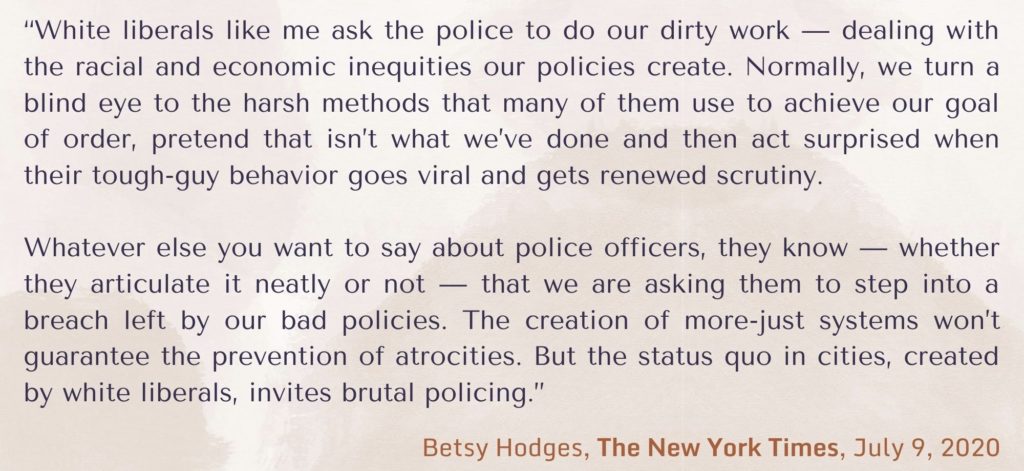
The progressive status quo “invites brutal policing.” It produces inequality and injustice. It furthers the racial divide. It keeps minorities trapped in failing systems. The record is clear as most U.S. inner cities have been run by one party for decades, and yet the very people who have failed are now gaining more power.
For the past few months, I’ve nearly worn a hole in my scull scratching my head over how the party responsible for most of our inner cities manages to escape any responsibility for the inequity, brutality, and injustice their policies have created.
Where is the report card?
Where is the reckoning?
Kimberly Klacik, a brave new candidate for congress in the 7th district of Baltimore, is calling for that reckoning in a viral new ad for her campaign. Her video gives a very honest but disturbing report card.
And like me, Bob Woodson is scratching a hole in his head. In a recent interview, he said:

Why indeed.
The party of hope and change isn’t making baskets.
And the other party hasn’t made an effective case for how they can do better. Often they are too afraid to step into the fray for fear of being labeled something nasty.
Neither party is making baskets.
Honestly, I’m not sure that either party can.
Let me be clear—our politicians could do a lot better. They must. But ultimately, the best baskets don’t stop at transporting a person’s body. They transport a person’s soul. The best baskets don’t just give us a new physical address. They give us a new spiritual one.
Our government could do a lot better, but it can’t do that. It can’t instill purpose. It can’t provide lasting hope. It can’t heal a person’s wounds. It can’t change a person’s destiny. It can’t transport a person’s soul.
Only God can do that.
I happen to know some amazing, God-inspired basket-weavers—Keith and Cissy Crowe, a couple of ordinary Christians with an extraordinary call. At a time when most people are downsizing to gated retirement communities, Keith and Cissy sold their safe home in the burbs to move into one of Birmingham’s toughest neighborhoods. There, they spend day after dangerous day cooking meals, housing the homeless, creating jobs, providing opportunities, inspiring kids, speaking Truth, instilling purpose, giving hope, loving their neighbors.
Keith and Cissy founded Hope Street Christian Ministries, a mission that fashions vessels to transport people from one world to another. They spend their lives making baskets.
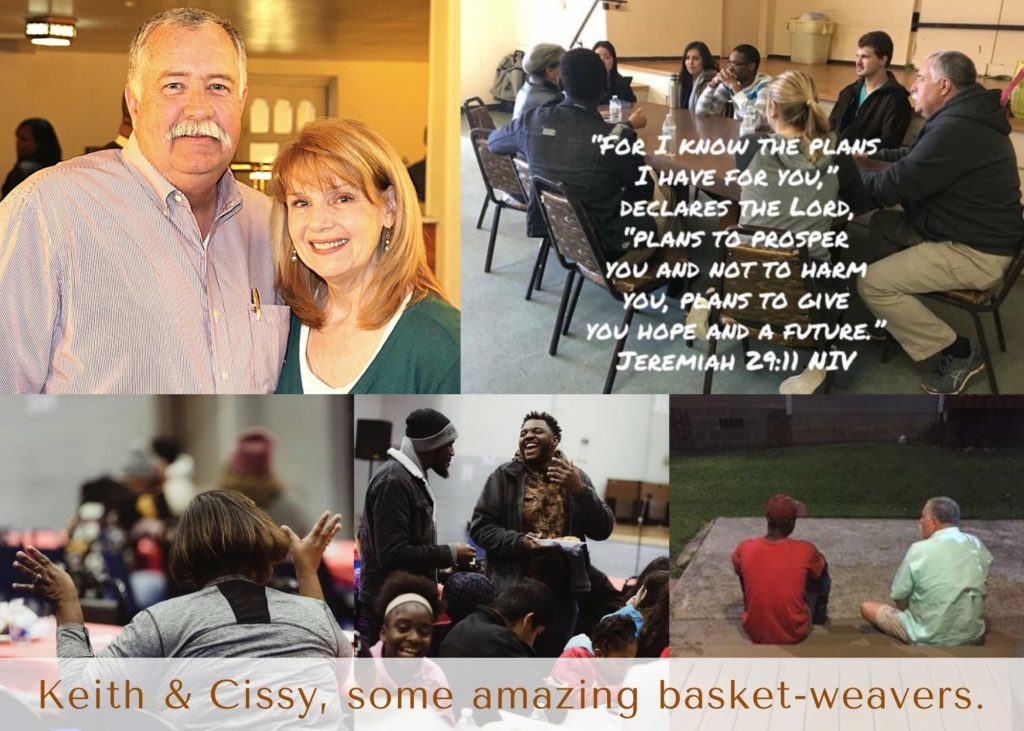
What segregates us in modern America are zip codes—zip codes that are run by politicians who don’t really want or know how to help people stuck in those zip codes. Zip codes housing precious people created in God’s image, people that many of us avoid, ignore, judge, or don’t make the effort to understand.
Our politicians can’t fix the problem. They can’t bridge that divide. And neither can we.
Only one Person can.
That Person traded a heavenly zip code for an earthly one.
That Person arrived in a manger, but was foreshadowed by a boy in a basket. A boy who floated from a shack to a palace. A boy who saved his people from slavery. A boy who said “let my people go” to the mighty leader of the land. A boy who marched his people to a new zip code, spiritually and physically.
So did the Messiah in a manger. Only He liberated us from a different kind of slavery, a slavery to sin. He gave us a new zip code with a heavenly address. He told us that we would always be foreigners in this land, but we should lay down our lives to help people find a zip code in heaven. He spent his life weaving baskets that will transport you, me, and whosoever will from this life to the next.
Let’s weave some baskets with Him.
Let’s help people find a way out of this life’s poverty in the hopes that, one day, they will find a better life in this world.
And one glad morning, they will find paradise in the next.
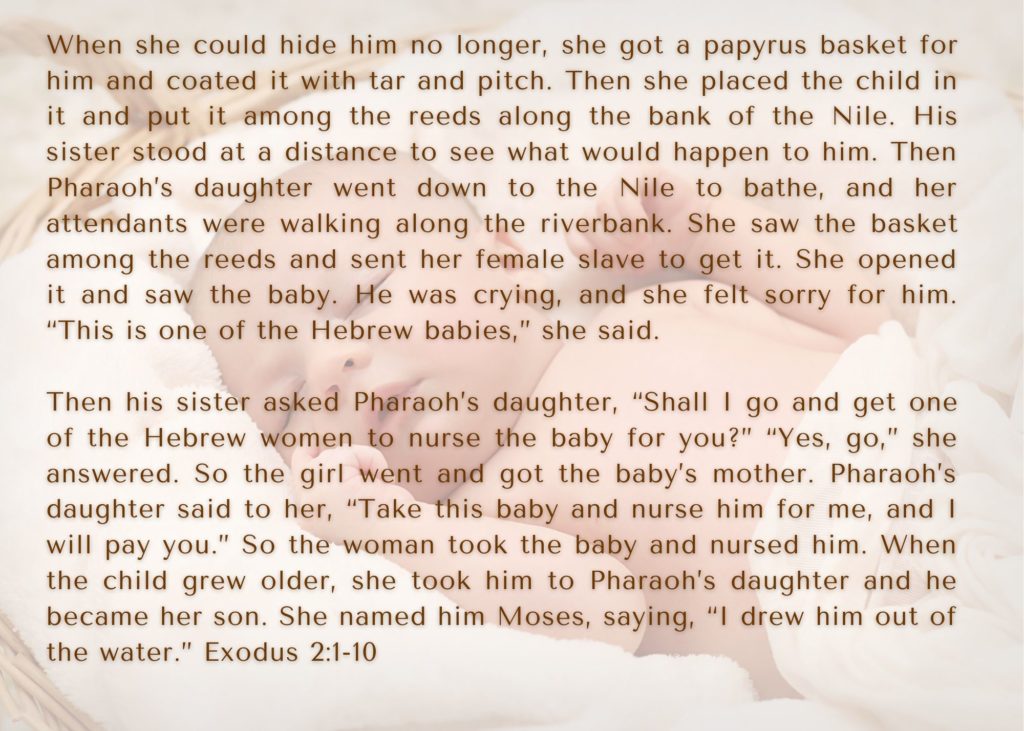
“Five Myths About Motherhood that Make You Feel Mere,
and Why They’re Wrong”
Sign up to be encouraged with the e-book
Meet catherine
Catherine Segars is an award-winning actress and playwright — turned stay-at-home-mother—turned author, podcaster, speaker and blogger. She is dedicated to helping parents be a godly example for their kids in an ungodly world.
Brand Design + Website by Carrylove Designs
@catherinesegars
Brand + Website Design by Carrylove Designs
